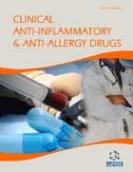
Abstract
Epigenetics represents a relatively new but burgeoning field with implications and applications in a wide variety of fields. Heritable post-translational epigenetic modifications (PTEMs) of chromatin can be induced by an ever-increasing list of biological factors, including those produced by bacteria. Of particular interest are the PTEMs induced by bacterial pathogens in host cells, in an attempt by the pathogen to promote survival and suppress host defence mechanisms. To date, a number of pharmacological agents have been used to reverse PTEMs, especially in cancer treatment. These Food and Drug Administration (FDA)-approved, commercially available epigenetic modifying agents (EMAs) include: 5- azacytidine (AZA), decitabine, suberoylanilide hydroxamic acid (SAHA) and romidepsin. AZA and decitabine have been used successfully to treat myeloblastic syndromes; likewise both SAHA and romidepsin have proven effective in the treatment of cutaneous T-cell lymphoma (CTL). There is accumulating evidence from rodent and in vitro studies, which point to the possibility that pathogen-induced PTEMs in host cells represent viable therapeutic opportunities for intervention with epigenetic drugs. However, the same commercially available EMAs used in cancer treatment remain untested in bacterial infection of humans. Here, we review current studies that have revealed PTEMs of host cells, induced by a number of pathogenic bacteria and discuss whether or not commercially available EMAs might represent realistic options in the treatment of these infections in humans.
Keywords: 5-azacytidine, bacteria, decitabine, DNMT, EMA, Epigenetics, HDAC, histone, infection, romidepsin, sepsis, suberoylanilide hydroxamic acid, therapy.
 55
55



